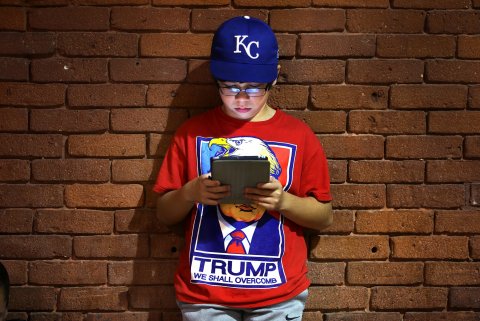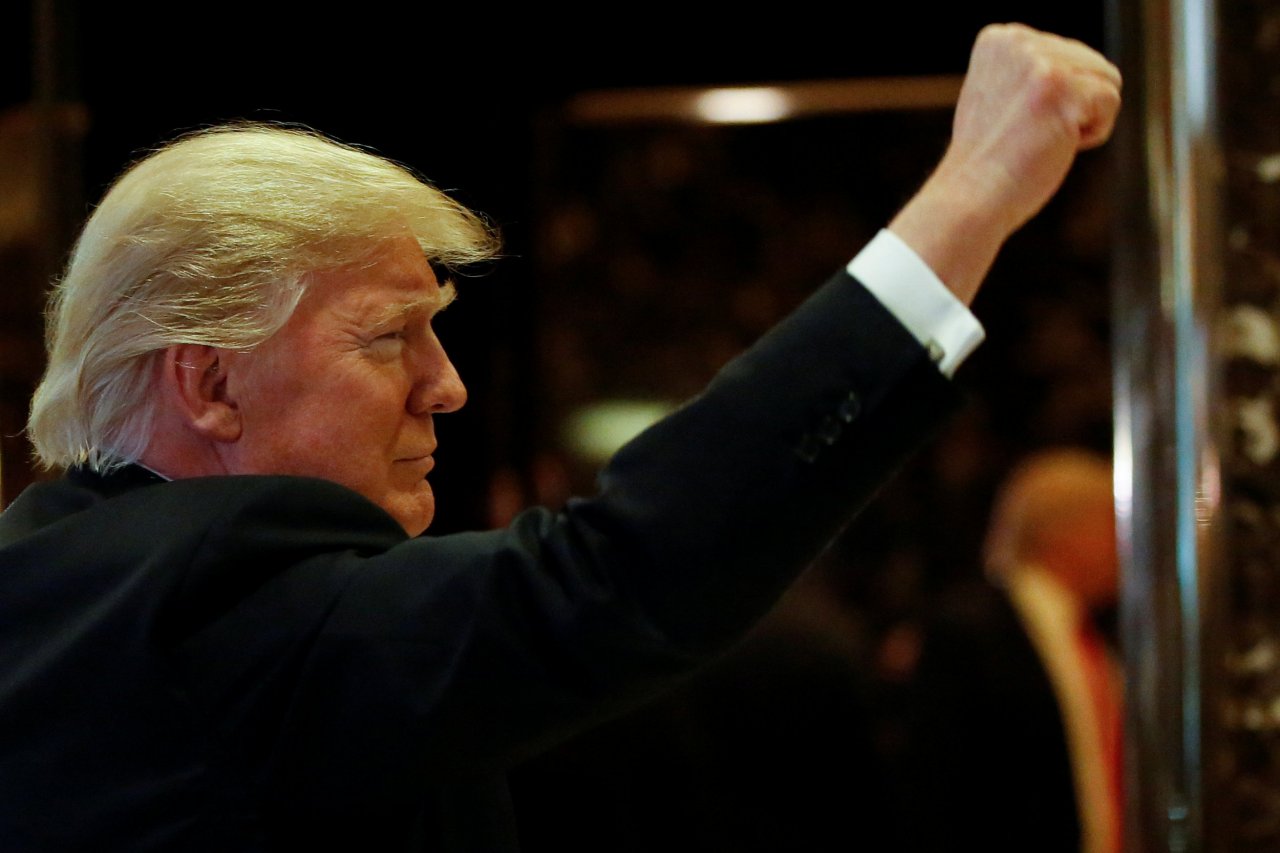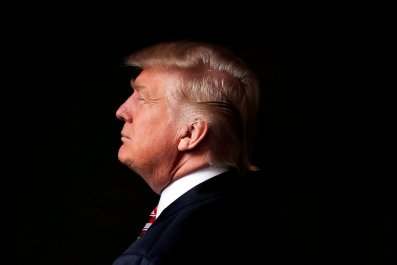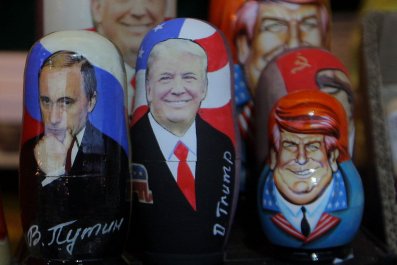How to Fuck Up America: A Field Guide for New People in Power.
1. Humble the Technology Industry
The new regime in D.C. seems to have had enough of smarty-pants geeks who spend one Red Bull–fueled week writing an emoji chatbot food-ordering app and sell it for a billion dollars. Over the past two decades, the U.S. tech industry has been a stunning force throughout the world. China didn't invent Google. Russia didn't come up with Facebook or Amazon or cloud computing or Oculus Rift virtual reality goggles. America did. And now tech is 7 percent of the U.S. gross domestic product, and that mostly goes to both coasts and a little to Austin, Texas, but certainly not Kansas, which is one big strike against tech.
The new president of the United States has never used a MacBook or Waze or Venmo, so obviously this stuff can't be all that important. Strike two.
About one-quarter of all tech companies launched between 1995 and 2005 were founded by immigrants, according to the Pew Research Center. That number is probably higher now. Strike three!
What to do about tech?

Well, apparently we need to stop immigrants from coming here so there's more room for Americans to start tech companies. That's how it works, right? Why would we want people with good ideas from India or Ireland or Israel coming over to build tech companies? Let them do it at home.
The new regime seems to want to force tech companies to manufacture in America, so products will be more expensive and less competitive. Apple makes its iPhones in a Chinese factory where workers jump off the roof and kill themselves. Sad! According to research company Strategy Analytics, the iPhone accounts for just 12 percent of global smartphone revenue but 90 percent of profits. Why is it necessary for Apple to make so much money? If the iPhone costs more to make in a U.S. factory, then some other company can get some of Apple's profits—like Samsung, which the newcomers must think is American since so many Americans own its phones, or at least the models that don't blow up.
Finally, the new regime can keep those smug techies guessing by throwing random threats at them, like "boycott Apple" because the company won't crack the security on an iPhone for law enforcement, or "Amazon has an antitrust problem" because CEO Jeff Bezos owns The Washington Post, which writes liberal "fake news." It's healthy for tech leaders to sometimes have to scramble to deal with a diving stock price instead of focusing so much of their time on "innovation."
2. Dismiss Alternative Energy
This month, China said it's going to spend more than $360 billion through 2020 on renewable energy, such as solar and wind. It thinks there's a huge opportunity in solving climate change and getting the world off oil.
In parts of the country, solar is now cheaper than any other power source. Companies like Wal-Mart and Google are working toward 100 percent renewable-energy use. "You can't put the genie back in the bottle when it comes to the economics driving solar, wind and battery storage," says Thomas Van Dyck, managing director at RBC Wealth Management.
Whatever. In the new regime, oil is better. So is coal. There's no global warming. No carbon-burning problem. That's why it's brilliant to make Rex Tillerson the secretary of state, so he can negotiate better oil deals for us, and give the Department of Energy to Rick Perry, who would like to kill it. You can't spell America without carbon—or at least some of it.
3. Derail Health Care
OK, so Congress is killing Obamacare. This will toss the whole $3.2 trillion U.S. health care industry into disarray as 20 million people lose insurance and health care laws get reworked just as breakthrough technologies stand to reinvent the industry.
A bunch of startups, like Color Genomics and Counsyl, are driving the cost of sequencing a person's genome down to a few hundred dollars. Pretty soon, everybody could get a genetic test that might help people head off cancer and other diseases. New artificial intelligence technology can help doctors sift through millions of pages of medical research and match it to data about a patient to diagnose diseases way better than ever. If U.S. companies get this stuff right and lead such tech advances, they will drive the economy for years.
But that seems to weird out the new regime. Better to preserve traditions: the swamped family doctor, the half-day sitting in waiting rooms reading old copies of O magazine, the prostate exam.
Burying Obamacare means adopting a policy that makes health insurance unaffordable for college-debt-laden, working-for-barely-nothing millennials. So what if they're a huge generation of Americans raised in the digital age, teed up to create new waves of technology that will blow away the rest of the world? If millennials want to stay healthy, the new regime is signaling, they can abandon the uninsured path of entrepreneurship and instead work at a company that offers health benefits, like Sears or Pitney Bowes.

4. Ignore Russian Hacking
The U.S. runs on information technology. More than any country, except for maybe Estonia, it is moving work, life, commerce, entertainment, government, the military and almost everything else online. Our love affair with data and all we can do with it has been a competitive advantage. But now it's our Achilles' heel. We're so vulnerable that, this month, the Food and Drug Administration warned that a heart implant made by St. Jude Medical is vulnerable to hacking. The Russians could take control of your heart!
This would be a serious danger to our national security, except that in the new regime, the Russians are now our friends. They wouldn't steal our data or harm our systems. And other countries like North Korea or Iran can't possibly be smart enough to follow Russia's lead and do damage. So there's no data security threat to address. We'll be fine.
5. Shift Resources From Cities to Small Towns and Rural Areas
Cities have a lot of wealthy folks and artists and people who were born in other countries. The trend is toward moving to cities—150,000 people every day do it. For the first time in history, more people live in cities than outside of cities. Importantly, cities create a critical mass of innovative thinking because people with interesting ideas are jammed together. Steven Johnson describes that in his book Where Good Ideas Come From. Cities, experts say, are where the future will get invented.
But the new regime doesn't want the future. It won by promising the past.
So too bad, cities. Rural and small town America kicked your butts this time. Cities can bend over and kiss their federal resources goodbye.
Bonus Round: Taunt North Korea Into Lobbing an A-bomb Into Silicon Valley
It should only take a couple of tweets about the size of Kim Jong Un's hands.























